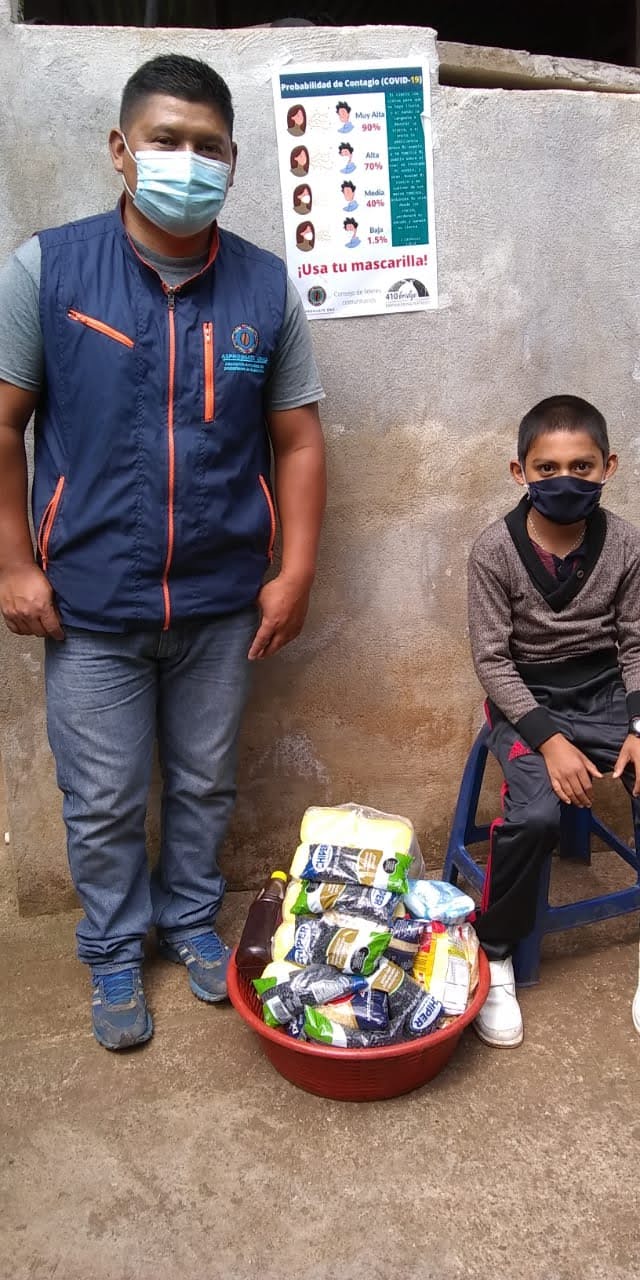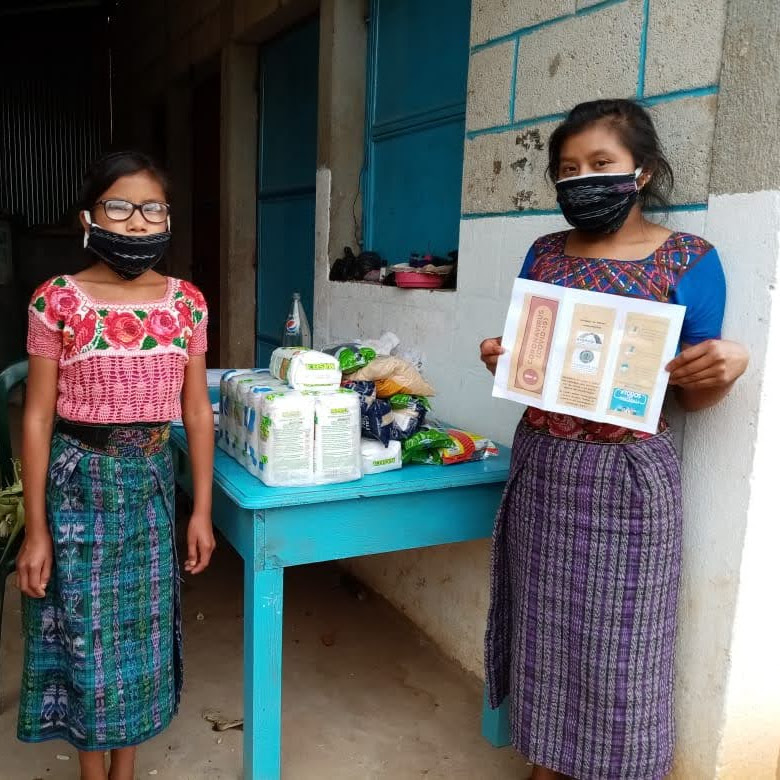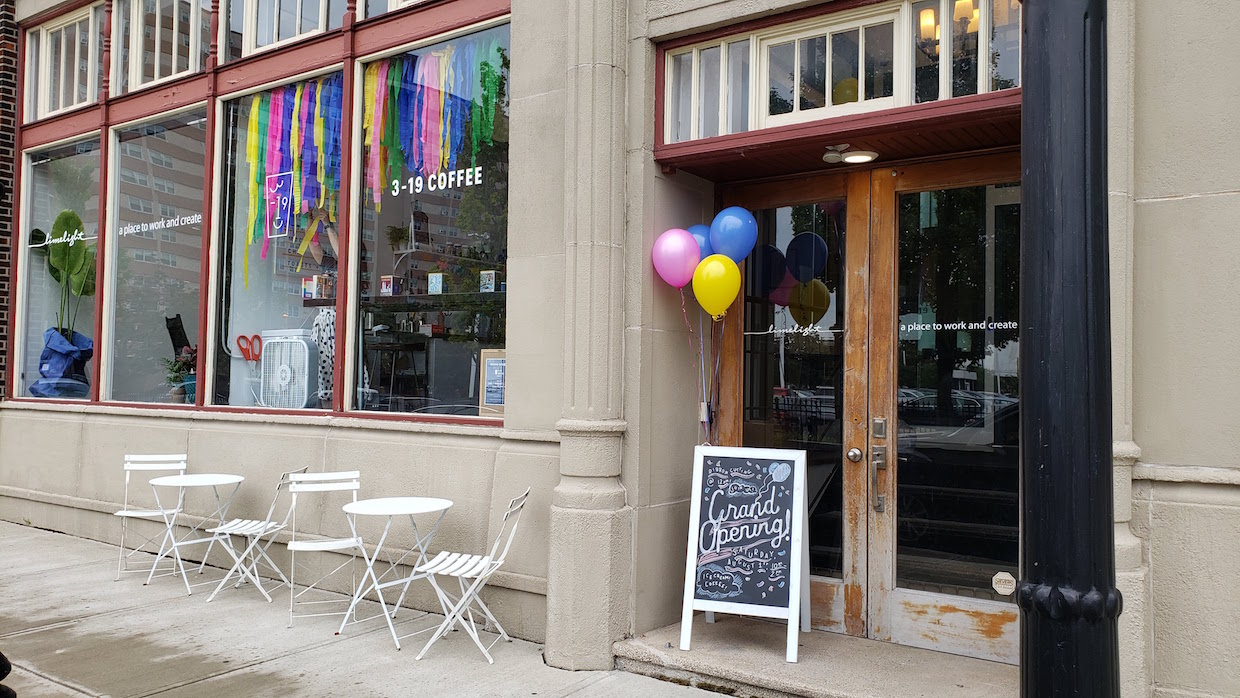
The newest location of 3-19 Coffee, which opened last week in Cleveland’s Ohio City neighborhood. Photo by Grace McConnell, courtesy of 3-19.
Food security and access to household necessities have been two of the most pressing and immediate impacts of the COVID-19 pandemic among smallholder farmers and their communities all over the world.
Doing its part to assist coffee-farming communities in its own supply stream that have been hit particularly hard by the pandemic, the growing Cleveland- and Oakland-based roasting and retail company 3-19 Coffee has launched The Rural Guatemala Assistance Project.
The fundraising and delivery effort involves subsistence packages for members of Asproguate Cooperative, which represents more than 1,900 coffee-growing families in the Guatemalan coffee-growing regions of Acatenango, San Martin Jilotepeque, Coban and Atitlan.

Asproguate Cooperative Manager Evelyn Rodas said the region of Guatemala is currently classified as a “red alert” area due to the outbreak of the COVID-19 pandemic. Courtesy photo by Evelyn Rodas.
3-19’s project is providing additional funding and support to a cooperative-led effort already underway and lead by Asproguate Manager Evelyn Rodas, with the goal of bolstering the communities now and into the future.
“We want to be able to assist the families in the Asproguate cooperative in their immediate need due to the pandemic,” 3-19 Co-Owner Mike Vehar told Daily Coffee News. “But we are supporting their livelihoods as well.”
With a subscription-based fundraising campaign that launched today and will run for two weeks, 3-19’s current fundraising goal is set to $2,500, and will run for two weeks. For every $20 raised, a package of food and household items will be donated to a family in need. Each donation also includes a coffee subscription for the donor. Subscriptions will include coffees sourced from the Asproguate cooperatives.
In Guatemala, Rodas is leading the effort to purchase food and household items for cooperative members.
“The administrative team here purchases supplies in supermarkets and large warehouses in the city, which is where they sell wholesale products,” Rodas said in an email to DCN. “It takes time because often you have to wait in large lines due to the mobilization restrictions because the region is on ‘red alert’ for the pandemic. And there are time restrictions for shopping.”
Rodas also organizes how food is distributed to families who cannot safely leave their homes because they or their family members are at high risk.
“Due to restrictions, it is not possible to gather groups of people and deliver groceries, which would be easier,” said Rodas. “We have to go from community to community visiting the homes for deliveries.”
While COVID-19 has not yet directly affected local coffee farming and production, Rodas expressed her concern about the upcoming annual harvest season.
“[COVID] has not affected the harvest yet, since the harvest starts in November, but if COVID is still strong at that time, there will definitely be delays in the harvest and processing,” said Rodas. “Social distancing will still be practiced and work must be done with quality and health assurance protocols.”
For other roasters who may be looking to provide more direct support to coffee-growing communities within their supply streams, Vehar and 3-19 Co-Owner Mike Weaver encouraged roasters to get in touch with their importer partners.
“When we were planning our origin trip to Guatemala, we reached out to Sustainable Harvest and asked for recommendations for cooperatives that were doing the right things for their farmers,” said Vehar. “Sustainable Harvest highly recommended Evelyn Rodas and Asproguate and they were a perfect fit for our mission as a coffee roaster.”
Weaver and Vehar now communicate directly with Rodas via WhatsApp on a regular basis. They suggested such simple messaging technology can be a useful and free tool for roasters to be more directly involved with producers for the benefit of both parties.
“In general, we are stronger as a community when we ask questions and work together,” said Weaver. “As roasters, we’re at the end of a long supply chain full of hard, hands-on work. Every step of the process is critical to the final product, so it’s beneficial to understand what’s happening at origin and get involved.”
Rodas offered a similar sentiment, yet from the perspective of coffee producers.
“The biggest concern is not to lose sight of the future, not to stop believing that things will improve,” said Rodas. “It’s important that everyone maintains open and transparent communication between the same producers and with our buyers and roasters.”
In addition to launching The Rural Guatemala Assistance Project, 3-19 recently opened a second brick-and-mortar cafe in the Ohio City neighborhood of Cleveland, inside the Limelight co-working space.
“We had our soft open last Saturday,” Vehar said, “and it also gave us a chance to start promoting The Rural Guatemala Assistance Project with Asproguate.”
Adhering to the public safety protocols du jour, the cafe offers a full menu of espresso-based drinks, pourovers, and seasonal drinks, as well as toasts and smaller pastries.
“It was tricky because of the social distancing and making sure everything is properly sanitized,” said Vehar. “But we’re taking it slow and making sure all the proper safety and sanitary measures are taken.”
3-19 also has plans to open its third cafe in the brand new food hall and marketplace, Oakland Assembly, which is scheduled to open in downtown Oakland on Aug. 21.
Craig Batory
Craig Batory is a writer, marketer and coffee professional working and
living in Detroit.









Comment